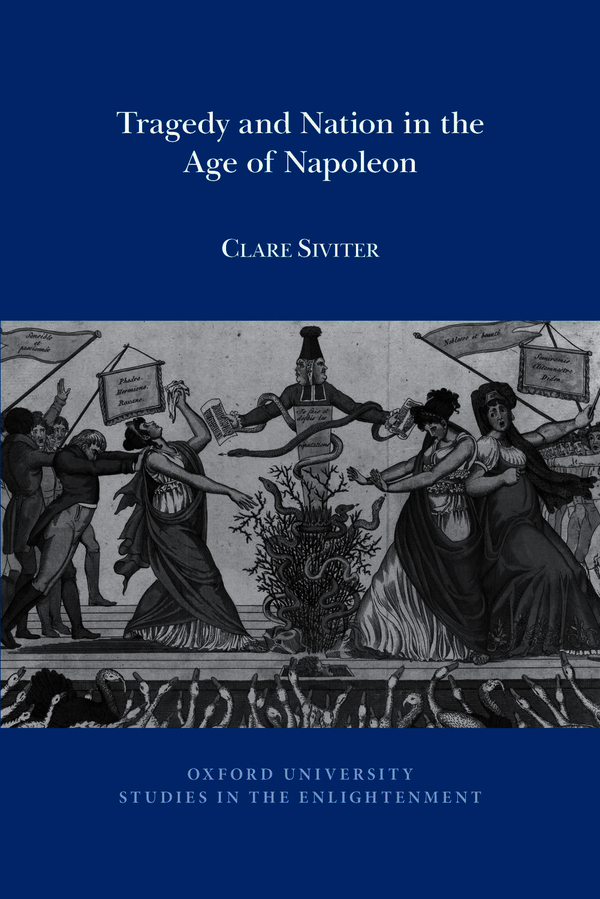Napoleon’s biographers often note his fondness for theatre, but as we approach the bicentenary of the Emperor’s death, little remains known about the nature of theatre at the time. This is particularly the case for tragedy, the genre in which France considered itself to surpass its neighbours.
Based on extensive archival research, this first sustained study of tragedy under Napoleon examines how a variety of agents used tragedy and its rewriting of history to make an impact on French politics, culture and society, and to help reconstruct the French nation after the Revolution. This volume covers not just Napoleon’s efforts, but also those of other individuals in government, the theatrical world, and the wider population. Similarly, it uncovers a public demand for tragedy, be it the return of Corneille, Racine, and Voltaire to the Comédie-Française, or new hits like Les Templiers (1805) and Hector (1809).
This research also sheds new light on Napoleonic propaganda and censorship, exposing their incoherencies and illustrating how audiences reacted to these processes. In short, Tragedy and Nation in the Age of Napoleon argues that Napoleonic tragedy was not simply tired and derivative; it engaged its audiences, by chomping at the poetic bit, allowing for a retrial of the Revolution, and offering a vision of the new French nation.


